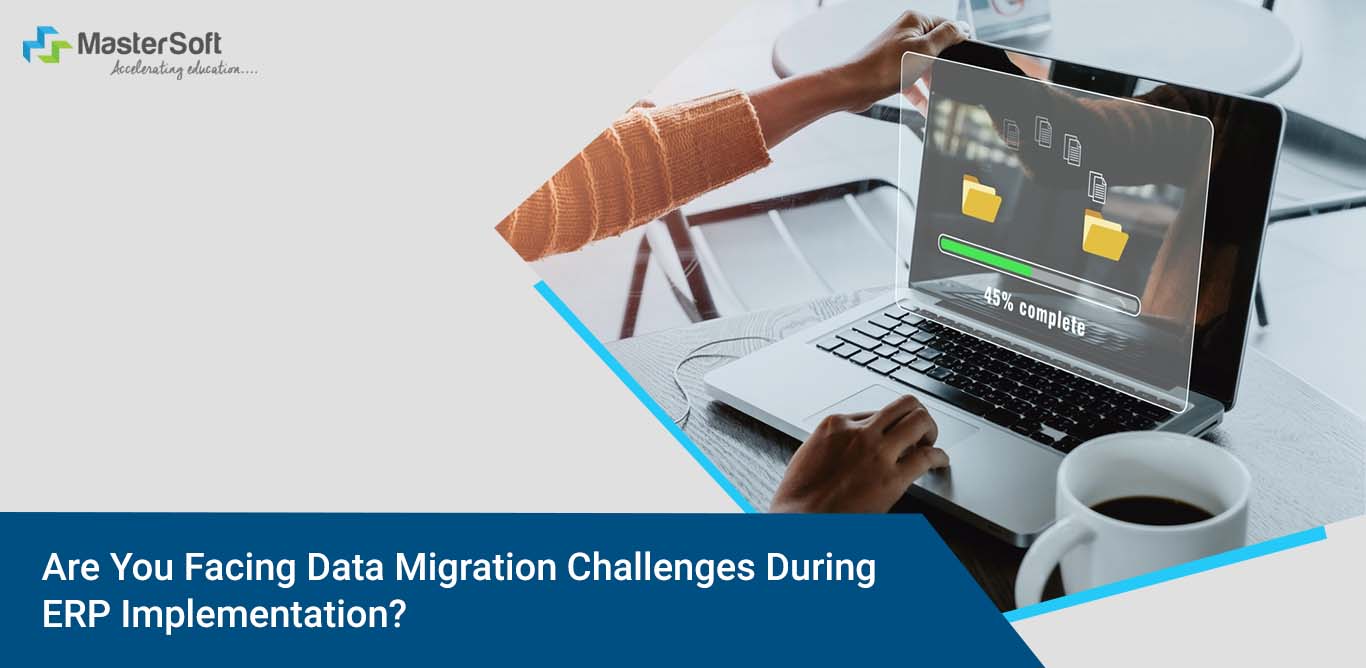
02, Nov 2022
The sole dependence on a paper-based system to conduct every operation of a school or college is no longer the norm. For instance, previously, institutes used the traditional way to collect and maintain student-related information for carrying out vital admission processes.
However, in the past two decades, technological advancement prompted higher educational institutes to adopt various systems, such as ERP solutions, to automate many institutional activities.
Furthermore, many institutes that expand their branches into different cities or several areas in the same city choose an efficient education management information system. As a result, it has become convenient for them to handle institutional information easily; over the years, the tool has provided them with insights that are helpful during decision-making.
On the other hand, the institutes that have been running for the longest years integrate appropriate software to automate administrative tasks.
Meanwhile, it is worth noting that the Indian education industry has developed with time, delivering more facilities to students. Simultaneously, the software vendors or companies view this as an opportunity and have created newer and innovative solutions.
Therefore, it is not surprising to see the growing popularity of ERP solutions , and the ever-increasing competition has urged vendors to roll out integrated suites of software.
What is ERP?
Enterprise Resource Planning (ERP), is a multi-module application package that executes and supports several organizational functions. The system effectively facilitates a standardized and convenient integration of all information related to specific activities. Therefore, it allows institutes to gather and process significant data without any technical hassle and enhances overall productivity.
For example, institutes opt for higher education ERP to automate academic and administrative processes. Consequently, it helps them carry out a digital transformation; parents no longer need to visit the premises to pay the fees, and teachers can conveniently track the student's academic progress.
Implementation of Higher Education ERP
Availability of the top-notch technology to facilitate the best support and services has become the number one priority of most educational institutes. Besides, the competition is fierce; schools, colleges and universities aspire to be the best and attain a state or nationwide ranking. But to get recognized amongst the most revered and reputed institutes, they need to fulfill specific criteria and accomplish certain targets.
Getting state-of-the-art higher education ERP is not enough; they must choose an application that considers several administrative functionalities. Besides, there are two requirements that the system should fulfill in the educational institute’s case.
Functional Requirement
Institution profile, Staff profile, Student profile, curriculum, Attendance, Performance analysis, Internal messaging, Hostel management, Transportation management, Feedback mechanism, Library management, Online examination, Alumni management, Semester Calendar, Marks record maintenance, Accounting, Time table etc.
Non-functional requirements
The non-functional requirement elaborates a performance characteristic of the system. Some of the typically non-functional requirements areas are Accessibility, Capacity, current and future reliability, Compliance, Documentation, Disaster recovery, Portability, Quality, Response time, Efficiency, Effectiveness, Privacy etc.
Before the ultimate implementing ERP, the institute needs to follow a few fundamental tasks, which are as follows:
Researching
This is the initial stage, wherein the institute needs to focus on researching; they set up a team, and the members look after laying out the project plan of implementing ERP and target dates, ensuring adequate resources are allocated, making product and design decisions, and day-to-day project management.
One of the team's initial goals is to figure out the current issues related to the process inefficiencies and the requirements for the system. During this stage, they need to determine if they require a cloud ERP software or an on-premises system depending on the institute’s requirement.
Design
This phase relates to the team members chalking out the specific requirements and an understanding of the workflows. Also, in this particular phase, they include the different department representatives as they know the details of their respective processes. As a result, the team members will have relevant information that they can use to customize and make changes to the workflow.
Development
In this stage, they would have specific design requirements, so they can begin the development phase, wherein customizing the system to specific needs is possible. Also, they can integrate with other tools and applications, such as e-learning tools.
At the same time, they need to develop training materials to help the teaching staff, admin, and other staff to adjust to the new system. Furthermore, they need to make elaborate plans for data migration which is a long and complex process.
Testing and Development
In this stage, testing and development happen simultaneously; the team members administer tests on particular modules and features of ERP systems such as ERP campus and make certain adjustments based on the results. Once they conclude the initial testing of the primary functions, they test the system's full capabilities. Also, they check the proper functionality by enabling employees to test the system for their day-to-day activities.
Deployment
This is the stage when the system goes live in action; there could be potential issues, for instance, some employees facing issues while navigating higher education Erp. The project team member must be available to answer any queries and help them understand.
Support and Updates
After the successful implementation of ERP, the team members need to pay attention to user feedback. They need to ensure that the stakeholders get the proper support and service by adjusting the system as per their requirements. Also, they can integrate additional features and configure them accordingly.
Improve Student Outcomes With Education ERP

Challenges of the Higher Education ERP
Inefficient Project Management
As mentioned above, before the ERP implementation, the institute needs to have a group or a team who would execute vital tasks before the system goes live. So, naturally, the team members need to be cognizant of any issues occurring during the pre-implementation phases. Besides, they need to possess working knowledge of ERP modules and system operations or else they would not be able to execute the process.
Lack of project management skills, ERP knowledge and capability, is a major issue that prevents them from executing the task at hand.
Poor Training for the Employees and Institute Staff
What good would integrating the most advanced applications do if the users/faculty/admin staff do not know how to navigate them?
Institutes understand the significance of innovation; therefore, they update their system with smart ERP solutions. But often, they undermine the necessity of providing training to the employees to use the system effectively. For instance, the training material is heavy with technical jargon making it difficult for users to understand and follow through. Similarly, project team members could be busy with other aspects of the implementation process that they fail to provide in-depth training.
As a result, different employees from their respective departments face difficulty in accessing information or carrying out their tasks. Furthermore, technical features of the advanced system like ERP campus can be difficult to undertake without specific training.
Are You Facing Data Migration Challenges During ERP Implementation?

Highly Dependent on Customization
Customizing features according to institutional needs is important, but software mismatch can sometimes cause heavy Customization . Consequently, that can delay projects, budgetary extensions, and poor quality of customization can lead to unresolved bugs and insufficient testing.
Ineffective IT Infrastructure
Poor IT infrastructure is one of the leading causes that lead to the slow processing capability of the ERP systems. Most often than not, the top management provides inadequate financial resources for implementing ERP; consultants suggest a low-performer IT structure hardware to reduce the cost and further add to the ineffectiveness.
Low-quality Testing
ERP testing phase is necessary to determine if the system functions accurately and if it would be an appropriate tool for the institute. However, it would be detrimental in the long run if the project members carried out the test in a hurry to meet the deadline and implement the ERP solutions as soon as possible. Moreover, it would not provide the required information to identify the pain points or data inaccuracies.
Limited Time
In order to reduce the budget of the higher education ERP, the top management and the project handlers reduce the schedule or time. However, due to limited time, they cannot execute necessary implementation tasks appropriately; most of them could be rushed to meet the stipulated time. So, naturally, this would overload the system and prevent the project managers from retrieving a proper understanding of the system.
Users Encountering Difficulty
Inadequate training of employees and staff by the project managers causes major obstacles later on. For instance, if an institute implements a campus ERP but fails to provide relevant training to the staff, they would not be able to execute various administrative activities smoothly.
How an ERP Software Solution can Improve Workflow Management in Educational Institutions

Solutions
- Top management should provide the project team members with enough time to carry out the research and testing procedures.
- If an institute wants to optimize its operations, it must provide the necessary financial resources.
- The project team members must select an ERP solution providerwho will cater to the institute's needs and address the issues.
- The project team members must ensure that the employees and stakeholders receive proper training to use the system. Also, they must make an easily understandable training material. In fact, to administer the best ERP software India, the vendors and institution's project manager work together to chalk out an in-detail action plan.
- After the implementation of the ERP solutions, the project managers must check and observe the functional processes and help if anyone is encountering difficulty.
In Conclusion
Institutes will continue to prosper in smart software solutions, but the future of ERP software India relies on addressing the administrative and institutional demands. Therefore, if an educational institution plans to implement software, it must create a road map and include organisational structure, including strategy/policy, data flow, business process structure, and academic functionalities, as a unique discipline.
The Fastest, Easiest, and Most Reliable Educational ERP System to Meet the Needs of Your Institute!
Mobile: 08448010216
Email: janki.somani@iitms.co.in












